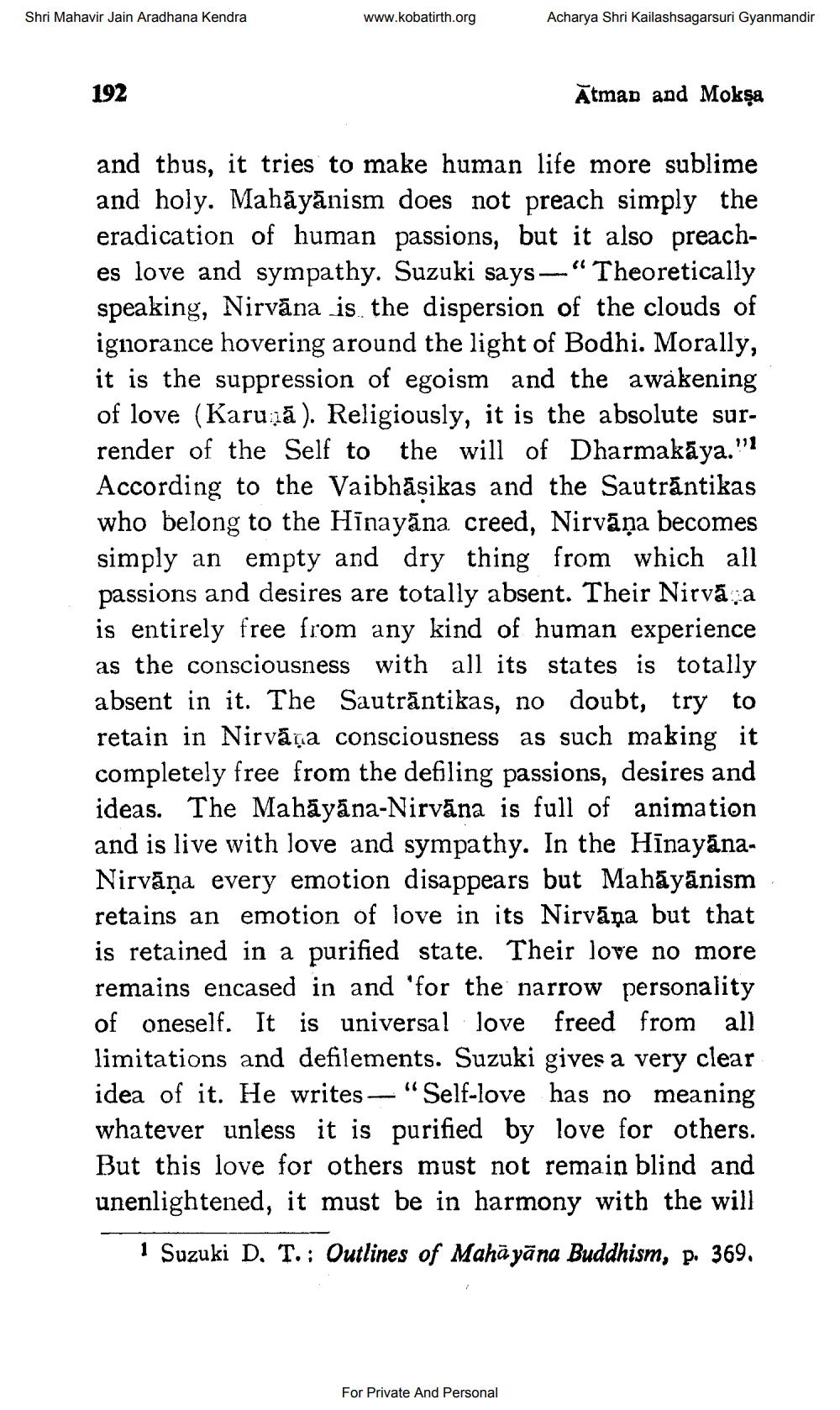________________
Shri Mahavir Jain Aradhana Kendra
www.kobatirth.org
Acharya Shri Kailashsagarsuri Gyanmandir
192
Atmap and Mokça
and thus, it tries to make human life more sublime and holy. Mahāyānism does not preach simply the eradication of human passions, but it also preaches love and sympathy. Suzuki says—“Theoretically speaking, Nirvāna is, the dispersion of the clouds of ignorance hovering around the light of Bodhi. Morally, it is the suppression of egoism and the awakening of love (Karunā). Religiously, it is the absolute surrender of the Self to the will of Dharmakāya.!' According to the Vaibhāsikas and the Sautrántikas who belong to the Hīnayāna. creed, Nirvāņa becomes simply an empty and dry thing from which all passions and desires are totally absent. Their Nirvá a is entirely free from any kind of human experience as the consciousness with all its states is totally absent in it. The Sautrāntikas, no doubt, try to retain in Nirvāña consciousness as such making it completely free from the defiling passions, desires and ideas. The Mahāyāna-Nirvāna is full of animation and is live with love and sympathy. In the HīnayānaNirvāņa every emotion disappears but Mahāyānism retains an emotion of love in its Nirvana but that is retained in a purified state. Their love no more remains encased in and 'for the narrow personality of oneself. It is universal love freed from all limitations and defilements. Suzuki gives a very clear idea of it. He writes — "Self-love has no meaning whatever unless it is purified by love for others. But this love for others must not remain blind and unenlightened, it must be in harmony with the will
1 Suzuki D. T.: Outlines of Mahāyāna Buddhism, p. 369.
For Private And Personal




